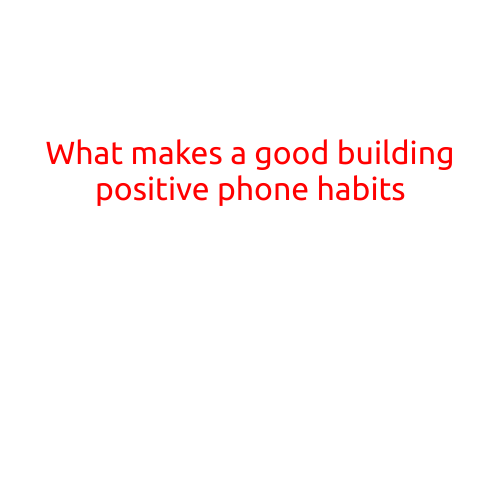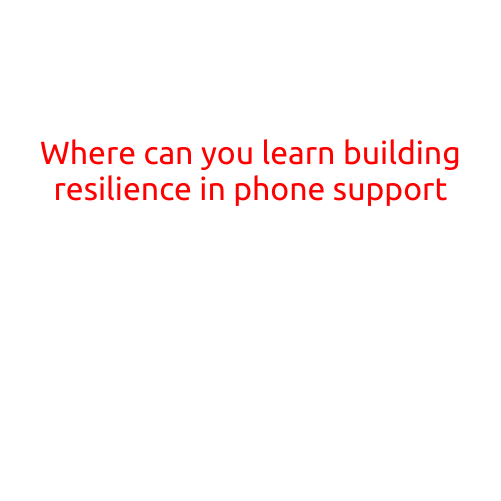
What Makes a Good Building Positive Phone Habits
In today’s digital age, our phones have become an integral part of our daily lives. From the moment we wake up to the moment we go to bed, our phones are always by our side. But with the constant notifications, social media updates, and email alerts, it’s easy to get sucked into the vortex of phone usage and develop unhealthy phone habits.
Bad phone habits can lead to decreased productivity, increased stress, and a sense of FOMO (fear of missing out). On the other hand, cultivating positive phone habits can have a significant impact on our mental and emotional well-being. So, what makes a good building positive phone habits?
Set Boundaries
One of the most effective ways to develop positive phone habits is to set boundaries for yourself. This can be as simple as designating certain times of the day as “phone-free” or setting limits on the amount of time you spend on social media. By setting boundaries, you’re taking control of your phone usage and avoiding mindless scrolling.
Prioritize Important Tasks
Another key to developing positive phone habits is to prioritize important tasks. When you’re focusing on a specific task, try to complete it before checking your phone. This will help you stay focused and avoid distractions.
Use Phone Apps Wisely
Phone apps can be both a blessing and a curse when it comes to developing positive phone habits. On one hand, apps like Freedom and Moment can help you track and monitor your phone usage. On the other hand, apps like Instagram and Facebook can be major time-wasters. Use apps wisely and set limits for yourself.
Practice Self-Care
Lastly, practicing self-care is essential for developing positive phone habits. By taking breaks from your phone and engaging in activities that bring you joy, you’re reducing your reliance on your phone and cultivating a healthier relationship with technology.
Additional Tips
Here are a few additional tips to help you develop positive phone habits:
- Use the “two-minute rule” - if you’re switching between tasks, try to limit your phone usage to two minutes.
- Schedule phone-free time - set aside time each day to put your phone away and focus on other activities.
- Practice mindfulness - pay attention to your phone usage and notice when you’re mindlessly scrolling.
Conclusion
Developing positive phone habits is not about avoiding technology altogether, but about using it in a way that enhances your life. By setting boundaries, prioritizing important tasks, using phone apps wisely, practicing self-care, and following additional tips, you can cultivate a healthier relationship with your phone and reduce the negative impacts of excessive phone usage.
Remember, it’s all about finding a balance that works for you. By being intentional with your phone usage, you can reduce stress, increase productivity, and improve your overall well-being.





